10 of the best eco-friendly places to stay in Europe
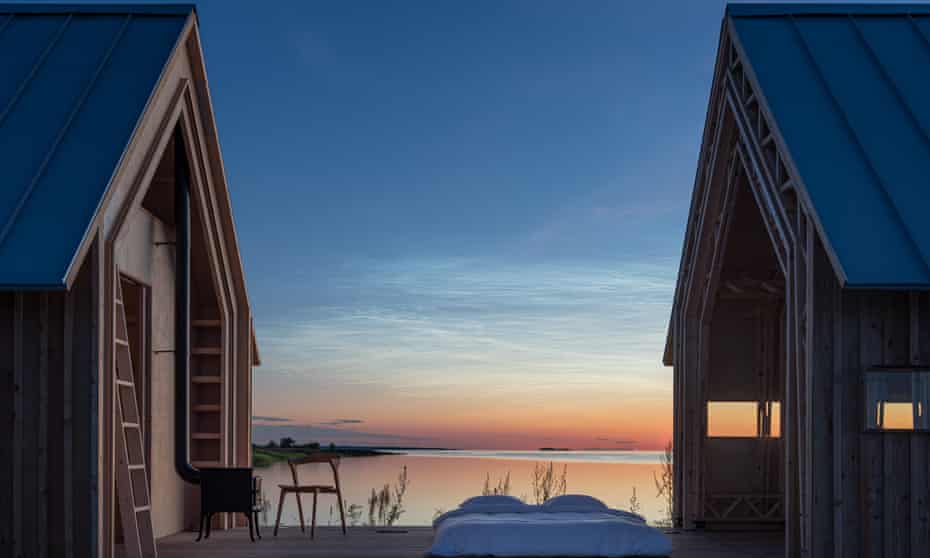
These sustainable stays offer the chance to share mountain views with bears, sleep easy in a low-carbon hotel and wellness experiences
Cabin Anna, Maashorst nature reserve, the Netherlands
The Holenberg forest is the gateway to the Maashorst nature reserve, a rewilding pioneer in North Brabant, home to roaming bison and Tauros – a project to revive the aurochs, an ancient European ox. Tucked away in the forest, among a rusty palette of trees, heather and wetlands, sits off-grid and self-sufficient Cabin Anna. From the linen to the recycled waste-product tableware, the emphasis is on reducing your environmental impact. The cabin sleeps two and has a vast glass atrium for enjoying the natural surroundings in all weathers, and a sunken bathtub. There are safaris, cycling and hikes on the doorstep.
From GBP154, holenberg.com
Magdas Hotel, Vienna
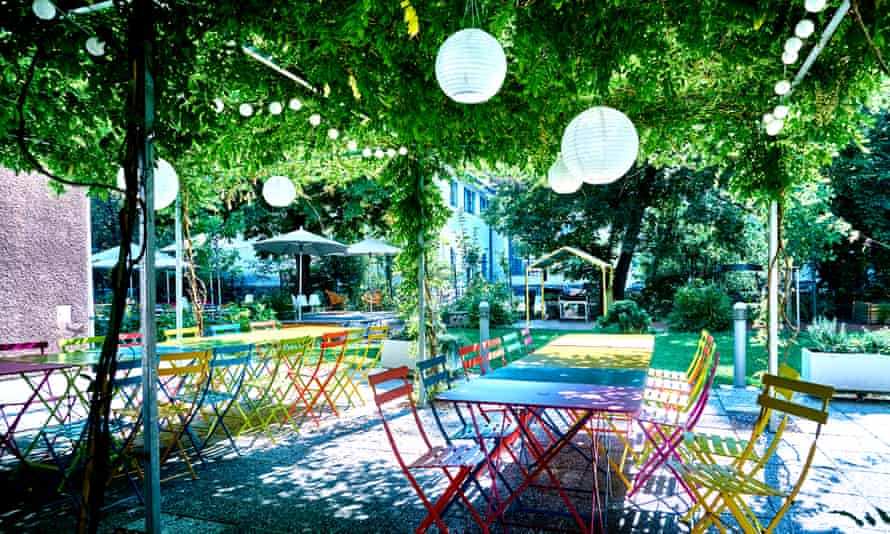
In Vienna’s Prater Park, home to the famous ferris wheel, Magdas Hotel has an enviable green location in one of Europe’s greenest cities. It’s run by a combination of socially minded hoteliers and immigrants or former refugees, all on a mission to promote inclusivity, and create a meeting place of 16 nations and 20 languages. It achieves that in bucketloads. Artwork from the local college, upcycled vintage furniture and local wine and beer served on the secluded terrace add to the welcoming atmosphere. Those arriving by train or bike receive a 10% discount.
Twins from EUR62, magdas-hotel.at
Impact House, Lisbon
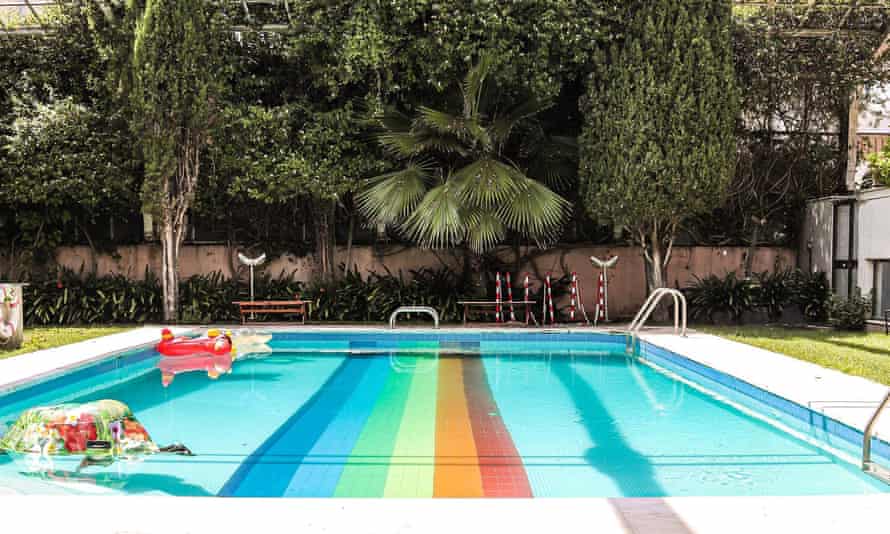
Sustainability is more than a checklist at this buzzing little B-Corporation-certified hostel set among the cobbled streets of the riverside Belem district -it’s a way of life. Partnerships with local non-profits, events to champion green issues, and a space for the community to come together are central to the property’s mission. Although it’s in the middle of the city, there’s an onsite vegetable garden, a terrace serving local and plant-based meals, and a swimming pool. Surplus food is donated to homeless charities, cleaning products are biodegradable, and energy comes from renewable sources. An art gallery showcases local and disabled artists, while a shop stocks goods from social enterprises.
Dorm beds from GBP15, doubles from GBP50, impactrip.com
Green Solution House, Bornholm Island, Denmark
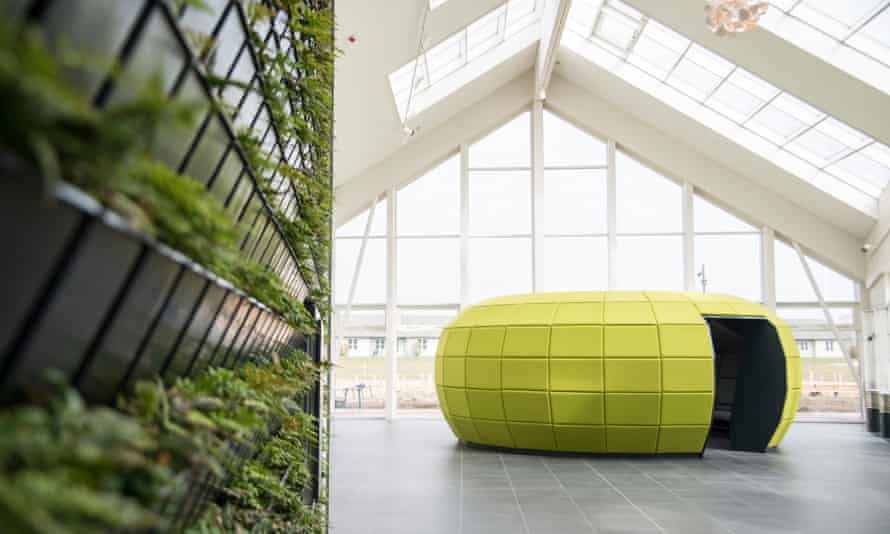
Architecture practice 3XN and eco-minded studio GXN refurbished this vast, modern hotel to a high-sustainability spec six years ago, and have built a carbon-negative extension entirely from wood. The new 24-room wing will absorb more carbon than it emits, via a cross-laminated timber structure insulated with wood fibres. The entire design of this hotel – just moments from a white-sand beach on the island of Bornholm, which itself aims to be carbon neutral by 2025 – uses materials that can be disassembled, recycled or biodegraded. The swimming pool has been repurposed into a thermal energy storage system, which heats every room in the hotel.
Doubles from GBP155 B&B, bornholmhotels.dk
Parcel Tiny House, various locations, France
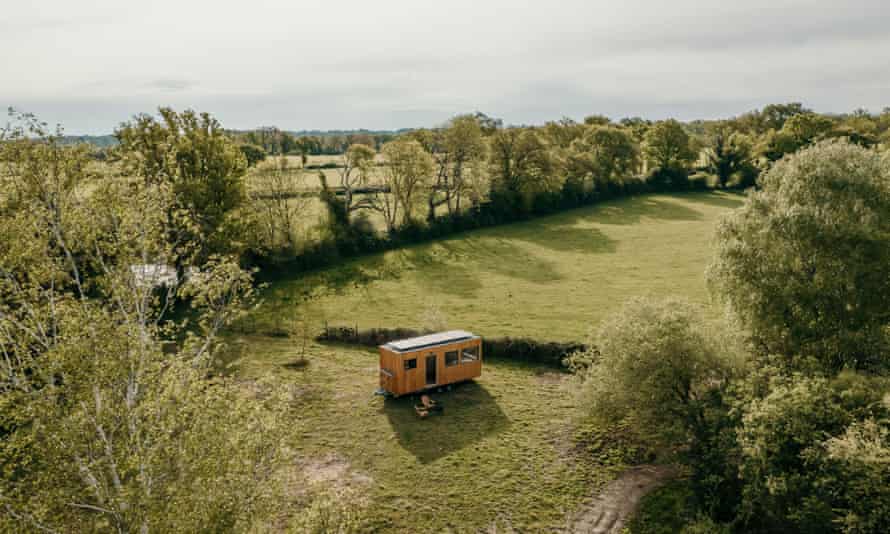
Designed and located to help travellers “rediscover the terroir”, Parcel House is a series of self-sufficient Tiny Houses carefully positioned in vineyards, meadows and farms in Brittany, Bordeaux, Limousin and Champagne. The hosts – including butter experts Linda and Jean-Marie in Brittany and eighth-generation wine growers in Saint-Emilion – are eager to share their passion for slow food and traditional methods. Each house is built with wood from responsibly managed forests in France and is equipped with solar panels and dry toilets. A lack of TV and wifi is a deliberate step to help guests switch off.
From EUR120, en.parceltinyhouse.com
Apipura Hotel Rinner, South Tyrol, Italy
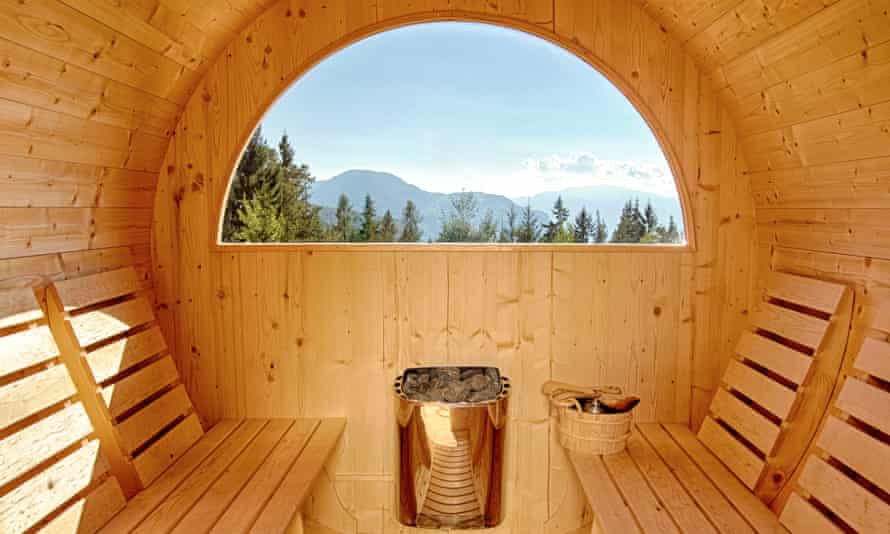
Everything at this family-run Alpine hotel revolves around that worldwide symbol of regeneration and sustainability: the bee. Owner and beekeeping expert Paul Rinner offers guests the Beecura system – Italy’s first api wellness experience, involving the inhalation of beehive air. The hotel also features a bee education trial, beekeeping courses, and a menu of organic honeys. More conventional leisure activities include an outdoor spa with mountain views and a huge play area for kids. Electricity comes from a new district heating station that generates power from waste wood products, and food is strictly local and seasonal.
Doubles from EUR145 B&B, hotel-rinner.it
Explorer Hotels, Germany and Austria
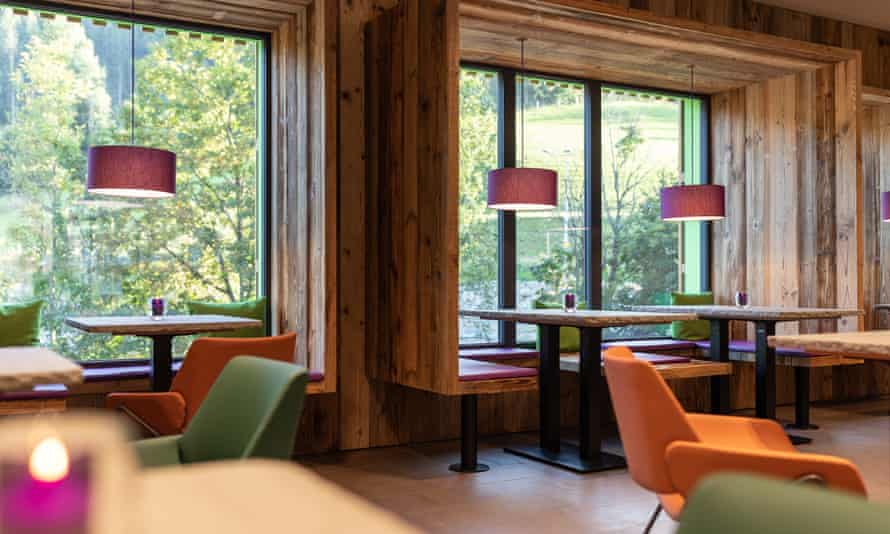
With branches in nine skiing and hiking regions across Germany and Austria, Explorer Hotels may not exude rustic mountain charm but they excel in low-cost, low-carbon holidays. The hotel group was the first in Europe to be certified with “passive house status” – think triple-glazed windows, solar heating and a high level of heat recovery (the hotels stay the same temperature in summer and winter). Each property is carbon neutral, uses ecologically safe cleaning products and commits to a low-waste policy.
From GBP40, explorer-hotels.com
Dene Cottage, Orkney Islands
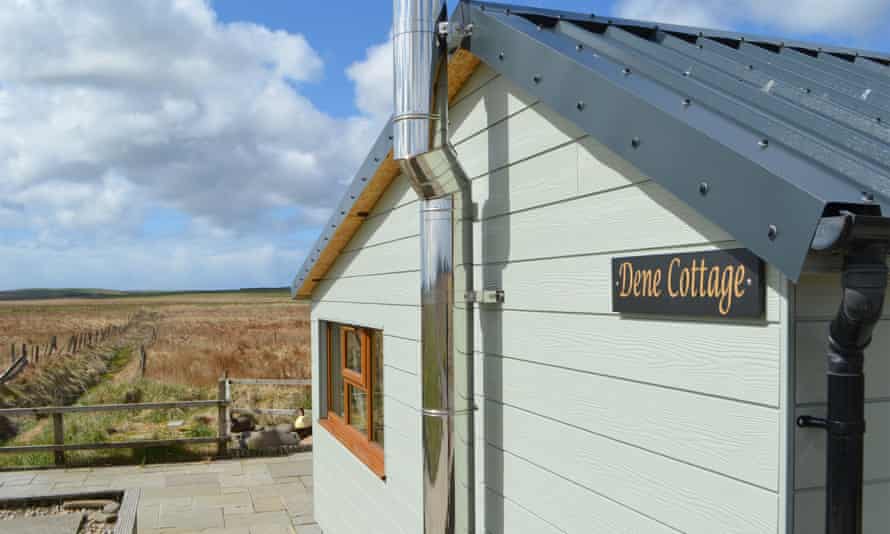
The ambition to transition to zero carbon is putting the Orkney Islands on the green map. An impressive number of self-catering holiday cottages on the islands have achieved the Green Tourism Business Scheme Gold award, including cosy Dene Cottage. Its off-grid location was part of the attraction when the owners converted it to a holiday home. Solar panels and a small wind turbine provide the electricity; it is insulated to high levels and well stocked with plastic-free kit. E-bikes are available to hire from Dounby village, five minutes’ walk down the road.
From GBP450 a week sleeping four, denecottage-orkney.co.uk
Terraegna Mountain Hut, Bisegna, Abruzzo, Italy
Recently renovated, this stone shepherd’s hut has the low impact of a bothy, with a few added luxuries: a woodburning stove for cooking and heating, and solar-powered electricity and hot water. It sits high in the Abruzzo mountains, in a saddle at 1,780 metres, accessible only by foot, mountain bike or snowshoe. This is a place where bears, wolves and wild boar roam. The hut can accommodate groups of up to 10 and is part of a drive to use tourism to help protect endemic species such as the Apennine chamois and the Marsican brown bear.
The hut has one double room and sleeps eight others in a shared room, from about GBP34pp, wildlifeadventures.it
Wheatland Farm, Devon
No stone has been left unturned in delivering low-impact holidays at this 21-acre conservation project and rural getaway in Devon. There are barn owls here, nine species of bat, tree pipits, hares, nesting nuthatches, and in winter the fields flutter with flocks of migrating thrushes. The five cottages get bags of character from a strict upcycling ethos and are run on 100% renewable energy – Honeysuckle Lodge has an “eco hot tub” sunk into the deck. Station transfers and electric bike hire encourage car-free holidays.
A seven-night stay for four from GBP422, wheatlandfarm.co.uk
Holly Tuppen’s book, Sustainable Travel: The Essential Guide to Positive-Impact Adventures, is published by Quarto (GBP18)